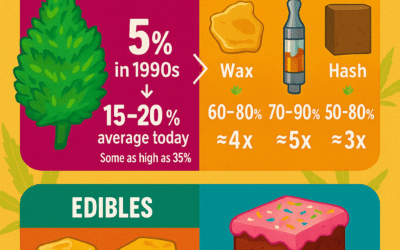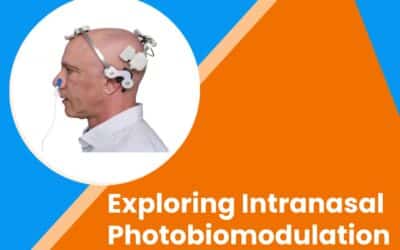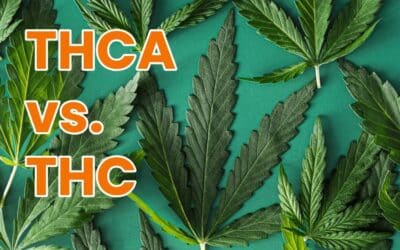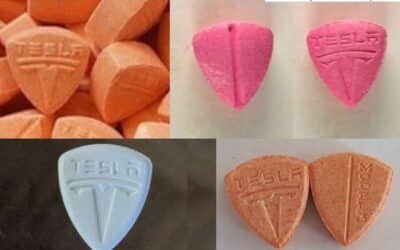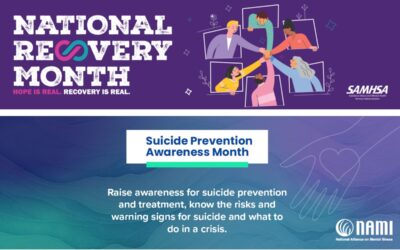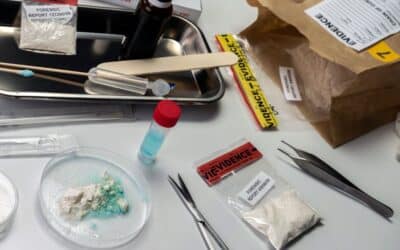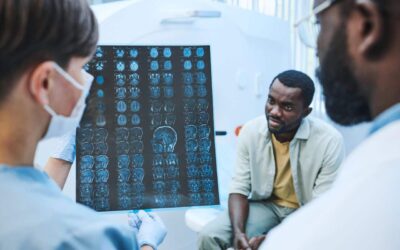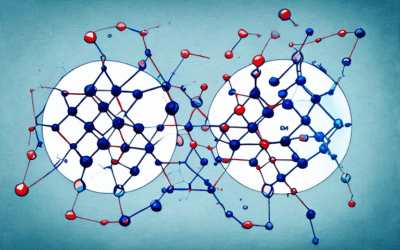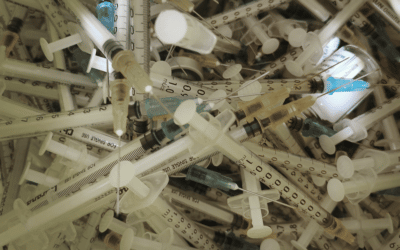Healthy Life Blog
Understanding Cortisol: The Stress Hormone’s Impact on Addiction and Recovery
Understanding Cortisol The Stress Hormone's Impact on Addiction and Recovery Table of Contents When navigating the complex journey of addiction recovery, understanding how your body responds to stress can be a crucial factor in maintaining long-term sobriety. One of...
Understanding the Risks of Mixing Gabapentin and Xanax
When managing multiple health conditions, it's not uncommon for individuals to be prescribed various medications simultaneously. Two commonly prescribed drugs—gabapentin and Xanax (alprazolam)—are often used to treat different conditions, but can be extremely...
What is Arid April?
As spring arrives and the calendar turns to April, many people are embracing a new sobriety challenge called "Arid April." Similar to the popular "Dry January" movement, Arid April encourages individuals to abstain from alcohol for the entire month of April. This...
Marijuana Vapes: What’s in them and is it dangerous?
Marijuana Vapes: What's in them and is it dangerous? Table of Contents Marijuana consumption has changed dramatically over the past decade, with vaping becoming one of the most popular methods of cannabis use, especially among younger users. As marijuana legalization...
Is Medication Required to Treat ADD?
Attention Deficit Disorder (ADD), now more commonly referred to as Attention Deficit Hyperactivity Disorder (ADHD), predominantly inattentive presentation, affects millions of people across all age groups. According to the Centers for Disease Control and Prevention...
Imposter Syndrome and Dissociative Identity Disorder
Living with Dissociative Identity Disorder (DID) presents unique challenges that extend far beyond the condition itself. One particularly complex aspect that many individuals with DID experience is imposter syndrome—the persistent feeling of being a fraud or not...
Can You Drink Alcohol While Taking GLP-1 Medications?
If you're taking a GLP-1 medication like Ozempic, Wegovy, or Mounjaro for weight management or diabetes, you may be wondering if it's safe to drink alcohol while on these medications. This is an important question, as many social situations involve alcohol, and...
4/20 Awareness: Understanding Marijuana-Induced Psychosis
4/20 Awareness: Understanding Marijuana-Induced Psychosis Table of Contents Marijuana-induced psychosis is a serious mental health condition that can occur when using cannabis, particularly high-potency products. When someone experiences cannabis-induced psychosis,...
Nitrous Oxide Addiction
Nitrous Oxide Addiction: The Dangers Behind "Harmless" Flavored Whippets In recent years, a concerning trend has emerged in smoke shops and convenience stores across the country: flavored nitrous oxide products marketed as a fun, safe way to experience a quick high....
Managing Fentanyl Withdrawal
If you or a loved one is struggling with fentanyl addiction, understanding the withdrawal process is a crucial first step toward recovery. One of the most common concerns we hear at Healthy Life Recovery is about the severity of fentanyl withdrawal symptoms and how to...
Research Chemicals: Understanding Designer Drugs and Their Dangers
Research Chemicals Understanding Designer Drugs and Their Dangers Table of Contents The landscape of substance abuse has evolved dramatically in recent years with the emergence of research chemicals, also known as designer drugs, novel psychoactive substances (NPS),...
How Long Does Alcohol Detox Take? A Complete Timeline
If you or a loved one is struggling with alcohol addiction, understanding the detox process is a crucial first step toward recovery. One of the most common questions we receive at Healthy Life Recovery is "how long does it take to detox from alcohol?" This...
Nicotine Addiction and Vaping in Rehab: Understanding Replacement Addictions
When someone enters addiction treatment, they often focus primarily on their main substance of abuse—whether that's alcohol, opioids, or other drugs. However, nicotine addiction frequently gets overlooked in the recovery process, with many treatment centers allowing...
Glossary of Addiction Treatment Terms
Glossary of Addiction Treatment Terms: Understanding Recovery Language Table of Contents Navigating addiction treatment can feel overwhelming, especially when confronted with unfamiliar terminology. At Healthy Life Recovery, we believe that understanding the language...
Sugar Addiction: Signs, Symptoms and Solutions
Sugar Addiction Signs, Symptoms & Solutions Table of Contents Sugar addiction, often perceived as a less serious issue compared to other addictive behaviors, has emerged as a subject of increasing concern among health professionals and researchers alike. Despite not...
Using Dreams in Recovery: What Do They Mean?
Many people in recovery from substance use disorders (SUD) experience vivid dreams about using drugs or alcohol. These so-called “relapse dreams” can be realistic, unsettling, and sometimes confusing, especially if you wake up feeling worried or ashamed. Yet these...
Are Addiction Treatment Centers Open Over the Holidays?
The holiday season is often seen as a time of joy, connection, and celebration. For many, however, it can bring about stress, isolation, and an increased risk of substance abuse. The combination of emotional triggers, family dynamics, and social events can make the...
Coping with Seasonal Depression in Sobriety
SAD and substance use disorders often intersect. Individuals may feel tempted to self-medicate with drugs or alcohol to escape the heaviness of depression. This is particularly risky during early recovery, where emotional regulation is still being rebuilt. Why SAD Can...
Shopping Addiction in Individuals with Bipolar Disorder and BPD
Addiction Treatment Programs for Pilots and their Families Table of Contents Shopping addiction, also known as compulsive buying disorder (CBD), is a behavioral condition that goes beyond occasional retail splurges. Characterized by an overwhelming urge to shop and a...
Neuro Gamma 4 Vielight: Exploring Intranasal Photobiomodulation
Image sourced from Research Gate (https://www.researchgate.net/figure/The-Vielight-Neuro-Gamma-in-use-The-stimulation-modules-consist-of-a-Nasal-Applicator_fig2_332527885) The Neuro Gamma 4 Vielight is a groundbreaking device that represents a significant leap forward...
Addiction Treatment Programs for Pilots and their Families
Addiction Treatment Programs for Pilots and their Families Table of Contents The allure of a pilot's life often paints a picture of glamour and adventure, with the skies offering a boundless frontier. However, the reality for many pilots involves a high-stakes,...
Finding the Right ADA Accessible Addiction Treatment Center
Finding the Right ADA Accessible Addiction Treatment Center Meeting the Needs of Individuals with Disabilities Table of Contents Substance use disorders impact millions across the United States, with individuals facing both addiction and disabilities often...
Technology Addiction: Signs, Symptoms, and Treatment
Technology Addiction Signs, Symptoms, and Treatment Table of Contents In today’s hyper-connected world, technology is more integrated into our lives than ever before. Smartphones, social media, gaming, and constant internet access have brought numerous conveniences...
Understanding The Difference Between THCA & THC
As the use of cannabis becomes more prevalent, understanding its various compounds is crucial for parents and loved ones who are concerned about its potential effects. Two of the most talked-about cannabinoids are THCA (Tetrahydrocannabinolic Acid) and THC...
What is the M367 Pill?
The M367 pill is a prescription medication used to manage moderate to severe pain. This white, oval-shaped tablet contains a combination of two active ingredients: 10 mg of hydrocodone bitartrate and 325 mg of acetaminophen. Hydrocodone is an opioid pain reliever,...
Signs, Symptoms, and Treatment for Compulsive Gambling
Gambling Addiction Signs, Symptoms, and Treatment Table of Contents Supporting a loved one with a gambling addiction requires patience, understanding, and careful boundary-setting. While you can’t force someone to seek help, your support can encourage them to take the...
What is Transfer Addiction?
Transfer addiction, also known as addiction transfer or cross addiction, occurs when a person in recovery from one addiction begins to engage in another compulsive behavior. This shift often happens when individuals are still seeking dopamine-driven pleasure after...
Pornography Addiction: Signs, Symptoms, and Treatment
Pornography Addiction Signs, Symptoms, and Treatment Table of Contents Pornography addiction refers to an uncontrollable compulsion to view pornographic content, leading to significant interference in a person's daily life, relationships, and mental health. While the...
Understanding Adderall Withdrawal & Detox
Adderall is a prescription stimulant primarily used to treat Attention Deficit Hyperactivity Disorder (ADHD) and narcolepsy. However, prolonged use or misuse of Adderall can lead to physical dependence, making it challenging to stop without experiencing withdrawal...
What Are Quaaludes?
Learn about Quaaludes and the harmful effects of depressants. Our San Diego drug rehab provides addiction treatment for those struggling with drug abuse.
Can You Detox From Alcohol at Home?
Can You Detox From Alcohol At Home? Understanding The Risks of At-Home Detox and In What Circumstances it Can Be Safe Table of Contents Deciding to stop drinking alcohol is a significant step toward better health and a more stable life. However, the journey to...
Eating Disorders and Addiction
Eating disorders and addiction are complex disorders that, despite their unique characteristics, frequently intersect in the lives of many individuals. These disorders can profoundly impact health, functioning, and overall quality of life. Eating disorders, such as …
Paying For Rehab With An HMO
Navigating the complexities of addiction recovery is daunting, especially when considering the financial aspects of treatment. Many grappling with addiction fear that the cost of rehabilitation could be a barrier too high to overcome. This concern leads to an...
Understanding Polysubstance Abuse
Polysubstance Abuse Understanding the Risks, Signs and Treatments of Polysubstance Use Table of Contents Substance abuse is a persistent and complex problem, but when multiple substances are involved, the risks and consequences can multiply dramatically. Polysubstance...
How To Detox from Opioids Without Feeling Like Sh!t
Let's be honest—detoxing from opioids is no walk in the park. The prospect alone can be daunting enough to deter the bravest souls from even attempting to kick the habit. And who can blame them? When faced with symptoms like bone-crushing muscle aches, relentless...
Risks of Mixing Gabapentin and Tramadol
The combination of gabapentin and tramadol is one that requires caution and medical supervision due to the increased risk of severe side effects, including respiratory depression, coma, and even death. Understanding the pharmacological profiles and interactions of...
Can You Work While In Rehab?
In today’s fast-paced world, balancing personal health and professional life is more crucial than ever. For the estimated 10.8 million full-time workers in the United States grappling with addiction, the decision to seek treatment often comes with fears of jeopardizing their livelihood. This comprehensive guide explores how individuals can maintain their jobs while attending rehab, the possibilities of rehabilitation after traditional work hours, and strategies to ensure that pursuing recovery does not come at the expense of one’s career.
Benzodiazepine Withdrawal: Timeline, Symptoms & Treatment
The process of withdrawing from benzodiazepines is not only complex but can also be perilous if not approached with caution and proper medical oversight. Understanding the benzodiazepine withdrawal timeline is crucial for individuals and healthcare providers alike to prepare for and navigate the journey toward recovery.
How Long Does it Take to Detox from Fentanyl?
Embarking on the journey to detox from fentanyl is a significant step toward reclaiming one's health and well-being. It's a path marked by challenges and triumphs, requiring courage, commitment, and an understanding of what lies ahead. Fentanyl, a potent opioid many...
Do I Need Alcohol Detox?
Alcohol use disorder (AUD) is a prevalent and potentially life-threatening condition that affects millions worldwide. According to recent statistics, a significant percentage of adults who consume alcohol may develop AUD, a condition that contributes to over three...
Private Drug & Alcohol Rehab Center
Struggling with addiction, mental health issues, or behavioral changes can feel isolating, but it’s important to recognize the transformative journey that awaits at a private drug and alcohol rehab center. Healthy Life Recovery in San Diego, CA, offers a beacon of hope for those ready to embark on this path.
Understanding Gabapentin: Use, Misuse, Side Effects & Withdrawal
Understanding Gabapentin: Use, Misuse, Side Effects & Withdrawal Table of Contents What Is Gabapentin? Gabapentin is a medication primarily used to help control and prevent seizures (convulsions) to treat epilepsy and relieve pain for certain conditions in the nervous...
Marijuana Psychosis and the Risk of Developing Schizophrenia
The intricate relationship between marijuana use and the risk of developing schizophrenia, underscored by the emerging phenomenon of marijuana-induced psychosis, represents a significant public health concern.
Understanding Process Addictions
misunderstood category of mental health conditions. Unlike traditional addictions to substances like alcohol or drugs, process addictions involve compulsive engagement in behaviors that provide psychological rewards or ‘highs.’
Early Signs of Liver Damage from Alcohol
The liver, a vital organ in the human body, plays a crucial role in maintaining overall health and well-being. It is responsible for essential functions such as detoxifying harmful substances, aiding digestion, and regulating metabolism. This makes the liver a key...
What is Rapid Detox?
Rapid detox is a medical procedure intended for people struggling with addiction. It involves sedating the patient and administering medications to speed up the withdrawal process. The idea is to complete the detoxification while the patient is unconscious,...
The Risks of Mixing Lexapro (Escitalopram) and Trazodone
Lexapro, the brand name for escitalopram, is a widely prescribed selective serotonin reuptake inhibitor (SSRI) used to treat depression and anxiety disorders. On the other hand, Trazodone, an antidepressant and sedative, is often used to manage major depressive...
What Are Tesla Pills?
In the constantly evolving world of recreational drug use, one name has surged to the forefront with an unexpected twist: Tesla. Not the electric car manufacturer, but rather the moniker for a potent and popular form of ecstasy pill. These Tesla-branded pills have...
What is TMS and How Does it Work?
Transcranial Magnetic Stimulation (TMS) is a noninvasive procedure that uses magnetic fields to stimulate nerve cells in the brain, intending to improve symptoms of conditions such as major depression. This is achieved without the need for surgery or any invasive techniques. The procedure involves an electromagnetic coil placed against the scalp, which creates a magnetic field that stimulates specific brain areas involved in mood control and depression.
Am I Depressed? Depression Self-Test
Depression is more than just feeling down or having a bad day. It’s a serious mental health condition that affects the mind and body. If you’ve been feeling low for a while, it might be a good idea to understand the signs and symptoms of depression and consider taking the PHQ-9 Depression Test.
Ketamine Therapy for Depression
As we navigate the intricate landscape of ketamine therapy, this article aims to provide a comprehensive overview, shedding light on its history, current applications, benefits, potential risks, and the exciting future it promises in the realm of mental health.
Suicide and Addiction
September holds dual significance as both Suicide Prevention Month and Recovery Month, underscoring the profound connection between suicide and addiction. This period serves as a poignant reminder of the intertwined crises many face and the collective responsibility...
Opioid Withdrawal Timeline
The opioid withdrawal process is a direct result of the body’s dependence on these drugs. When an individual ceases or significantly reduces the consumption of opioids after prolonged use, the body reacts, manifesting a range of symptoms.
What is Eutylone?
Eutylone, scientifically classified as β-Keto-ethylbenzodioxolylbutanamine, belongs to the cathinone family, a group of beta-ketone amphetamines analogous to the naturally occurring khat plant alkaloids. Originating as a research chemical, Eutylone started gaining...
Benefits of Long-Term Addiction Treatment
Addiction is a complex and challenging condition that affects millions of individuals worldwide. Long-term addiction treatment, spanning from six months to a year, has emerged as a highly effective approach in helping individuals overcome the grips of substance abuse....
Healing Your Brain After Addiction: Neuroplasticity and Addiction Recovery
Neuroplasticity, also known as brain plasticity, is a term that sounds like it belongs in a science fiction novel, but in fact, it’s a genuine, scientific concept that has revolutionized our understanding of the brain.
The Long-Term Effects of Mushrooms
Our comprehensive guide on the long-term effects of shrooms will provide you with valuable insights and detailed information that will help you understand the potential consequences of using psychedelic mushrooms over an extended period.
Opioid-Induced Pruritus: Why Do Opiates Make You Itch?
Ever wonder why you feel itchy after taking certain medications, specifically opioids? Opioid-induced itching, also known as opioid-induced pruritus, is a common yet frequently overlooked side effect of opioid medications. These medications are prescribed for their...
The Long-Term Effects of Adderall
Adderall is a prescription drug that's commonly used to treat attention deficit hyperactivity disorder (ADHD) and narcolepsy. However, it's also a drug that's often abused by people who use it to enhance focus and productivity. While it's generally safe when used as...
Xylazine “Tranq Dope”: The Tranquilizer Turned Street Drug
As the modern world grapples with a multitude of challenges, drug misuse stands as one of the most daunting. In this context, the emergence of Xylazine has further complicated matters. This veterinary tranquilizer turned street drug has rapidly gained notoriety due to...
Substance Abuse and Panic Attacks
Substance abuse can have effects on mental health, including an increased risk of panic attacks. Understanding the link between substance abuse and panic attacks is essential in treating and preventing the adverse consequences of substance abuse. We can help you overcome addiction and prevent panic attacks, leading to a happier and healthier life.
The Dangers of Rapid Detox
Drug and alcohol addiction is a complex disease that can be difficult to overcome. Many addicts seek help from detoxification centers to get rid of harmful substances from their bodies before starting the treatment process. One option for detox that has become...
Talking to a Loved One About Their Addiction
Addiction can be a challenging topic to discuss, especially with someone you care about deeply. However, it’s essential to address the issue before it causes more harm. Discussing addiction with a loved one is crucial because addiction can have significant consequences on their health, relationships, and overall well-being.
Exploring the Interactions Between Trazodone and Xanax
Psychiatric disorders such as anxiety and depression are highly prevalent, and medications used to manage these conditions often interact with each other. Trazodone and Xanax are two commonly prescribed drugs for the management of depression and anxiety, respectively....
Understanding Anabolic Steroid Addiction
Anabolic steroid addiction is an unhealthy dependence on the use of anabolic steroids, which can lead to physical, psychological, and social problems. Anabolic steroids are synthetic hormones derived from testosterone that are commonly used by athletes and bodybuilders to enhance physical performance.
Misdiagnosis of Borderline Personality Disorder
Living with Borderline Personality Disorder (BPD) can be incredibly challenging, especially if it's not properly diagnosed. Deciphering which condition is causing a person's symptoms can be a long and confusing process. Many people who have BPD aren't aware of their...
What is a BORG? Blackout Rage Gallons
College students around the country have been participating in a new drinking trend that has gained popularity through the short-form video-sharing app TikTok. Videos on the TikTok app using the hashtag BORG have received over 99.8 Million views, but what are these...
Microdosing Psilocybin: The Pros, Cons, and Unknowns
For years, scientists have been researching the potential benefits of psilocybin (magic mushrooms), LSD, and other psychedelic drugs for mental health problems.
LGBT and Mental Health
The LGBT+ community’s challenges can lead to a greater risk of developing mental health disorders. LGBT and mental health treatment can help reduce symptoms.
LGBT and Addiction
Substance abuse can occur more in the LGBTQ+ community. Read through this article to learn more about the LGBT and addiction correlation.
The Stigma Behind Holistic Approaches to Addiction Treatment
The holistic treatment stigma can lead to individuals not receiving complete addiction treatment. Holistic methods can help with the mind, body, and soul.
Social Media and Its Toll on Mental Health
Social media can have a profound impact on our mental health. Learn how to protect yourself and find resources here at Healthy Life Recovery.
Benefits of Music Therapy for Mental Health
Music therapy can be used as a holistic method in conjunction with standard methods of treatment to improve overall mental health.
Support Groups for Parents of Addicts
Parents of addicts can benefit from support groups with people who understand what they are going through and can provide advice, reassurance, and help.
Atypical Presentations of Overdose
Atypical presentations of overdose can affect the clinical response time, in which every second counts. Understanding unusal signs and symptoms can save lives.
Intervention Types
Different intervention types can be utilized to help loved ones find recovery from addiction. An interventionist can help with deciding type and treatment.
Signs of a Fentanyl Overdose and Muscle Rigidity
The fentanyl associated with most overdoses is made in a lab and sold illegally. Fentanyl can come as a powder, eye droppers, nasal sprays, or made into pills.
How to Not Be Codependent
Codependent individuals can give so selflessly that they ignore their own needs, leading to struggles with partners, parents, and friends.
Weed Paranoia & Psychosis Especially With Stimulants
Several studies suggest that marijuana use is linked to increased risk for psychiatric disorders such as weed paranoia & psychosis, especially with stimulants.
Dependence vs. Addiction
Although often used interchangeably, dependence & addiction are two different terms used to describe the relationship an individual has with a substance.
How to Get Someone into Rehab
Getting someone you know and love into rehab for substance abuse can be challenging, but understanding addiction and making a plan can help.
Solutions for Hepatitis B & C
There are solutions to help those with hepatitis live a long, healthy life and stop the spread of the virus. Here’s all you need to know about hepatitis B & C.
Muscle Pain from Drinking
Are you experiencing Muscle Pain from Drinking? Alcohol is a toxin that can have both short-term and long-term effects on your muscles.
How to Support a Loved One in Recovery
If your loved one is starting treatment for addiction, you may play a key role in their recovery. Supporting your loved one can help with long-term recovery.
Endorphins & Pain Relief
Endorphins can provide natural pain relief in the body and improve overall mental health. Finding ways to increase endorphin levels can help with addiction.
Endorphins vs Dopamine
Dopamine and endorphins are both naturally occurring brain chemicals. Participating in activities that can grow these levels can enhance addiction recovery.
Healthy Releases of Endorphins
Healthy releases of endorphins can be achieved through a variety of activities. Endorphin releases can benefit those striving for long-term addiction recovery.
Ways to Boost Serotonin Without Medication
Boosting serotonin without medication is possible with several activities. Learning how to boost serotonin naturally can help with overall mental health.
Athletes, Injuries, & Substance Abuse
Athletes often sustain injuries while playing their sport and are prescribed opioids. Opioids can be addictive and cause long-term damage.
Long-Term Effects of Alcoholism
The warm buzz may seem fun and harmless at the time, but there are many potential long-term effects of alcholism. With treatment, effects can be reduced.








